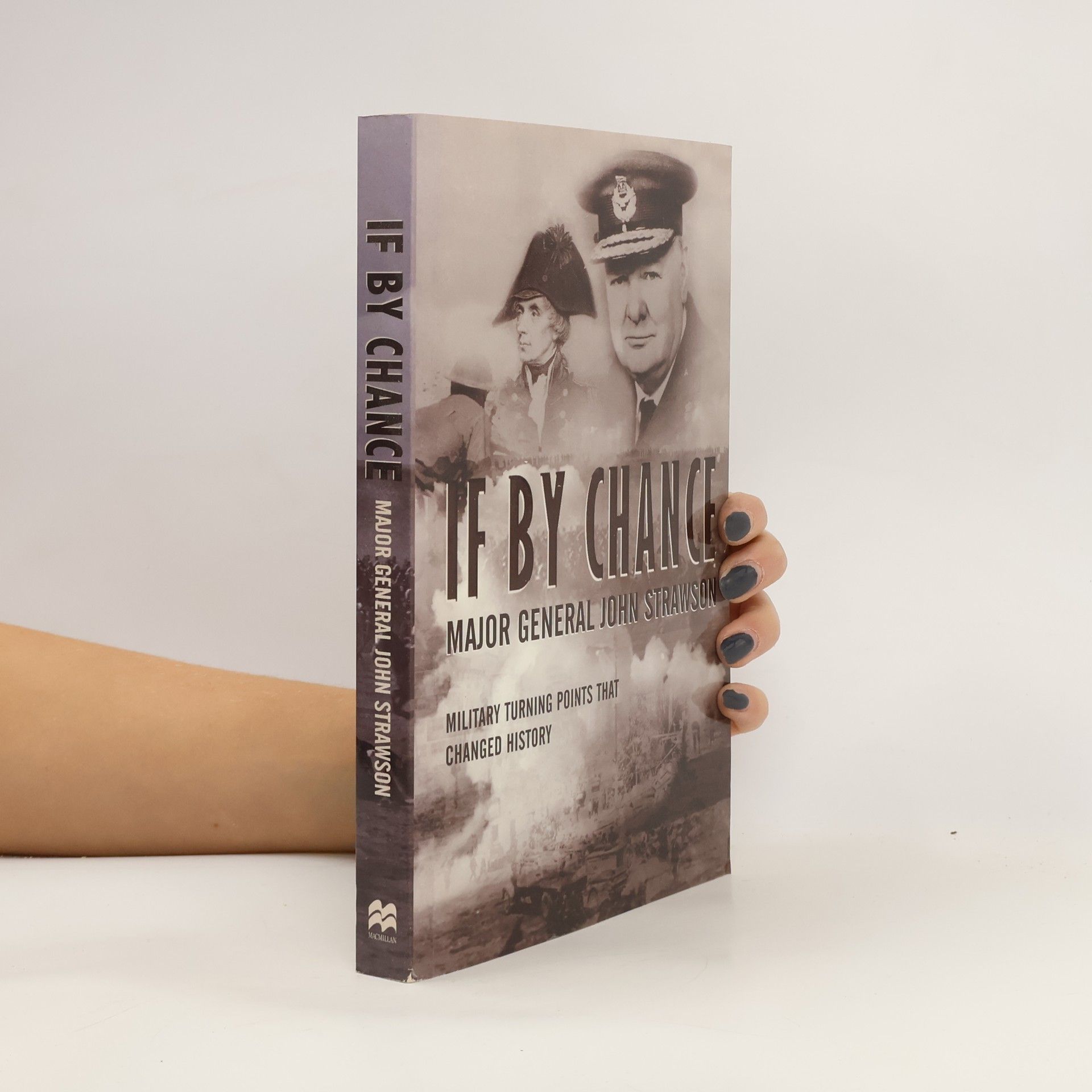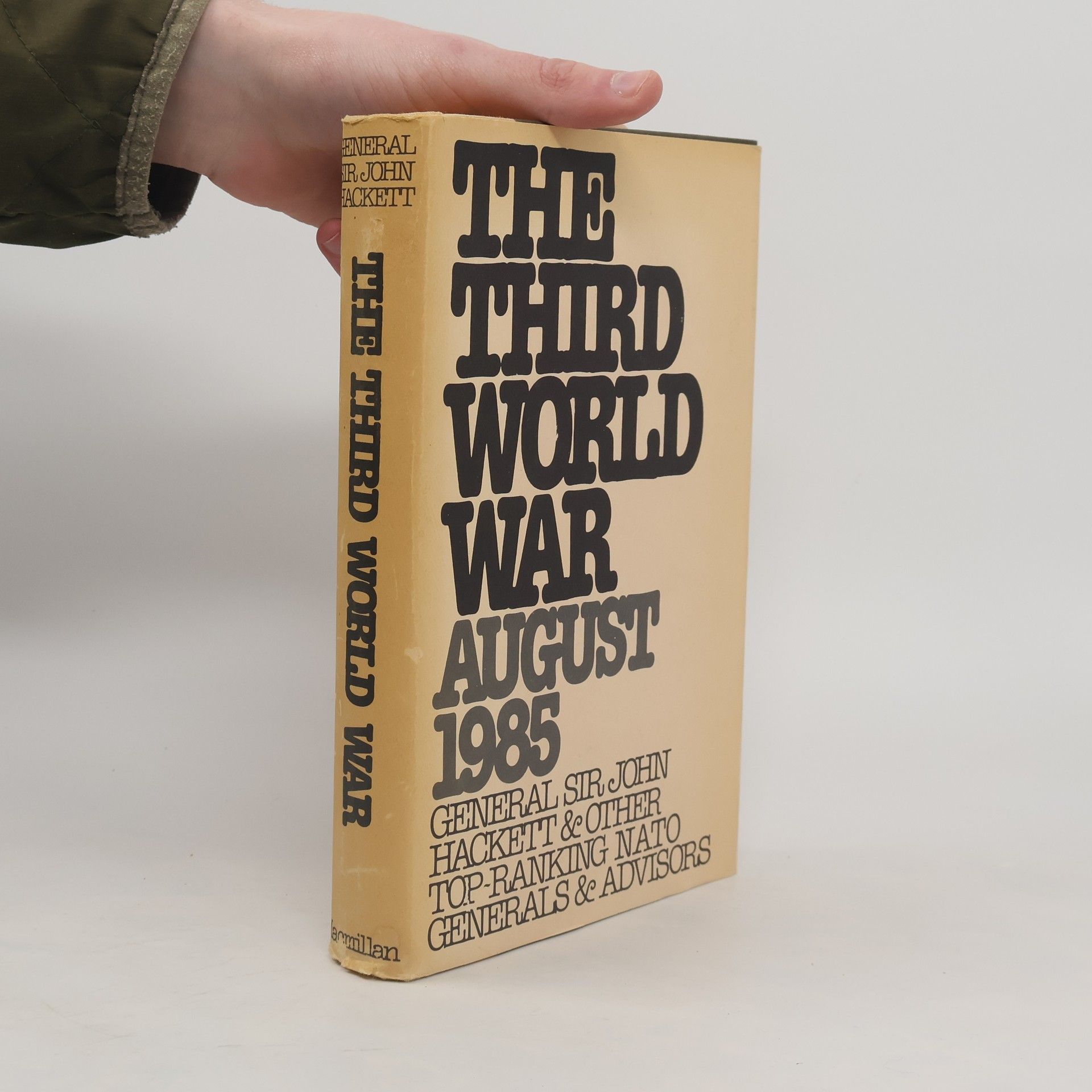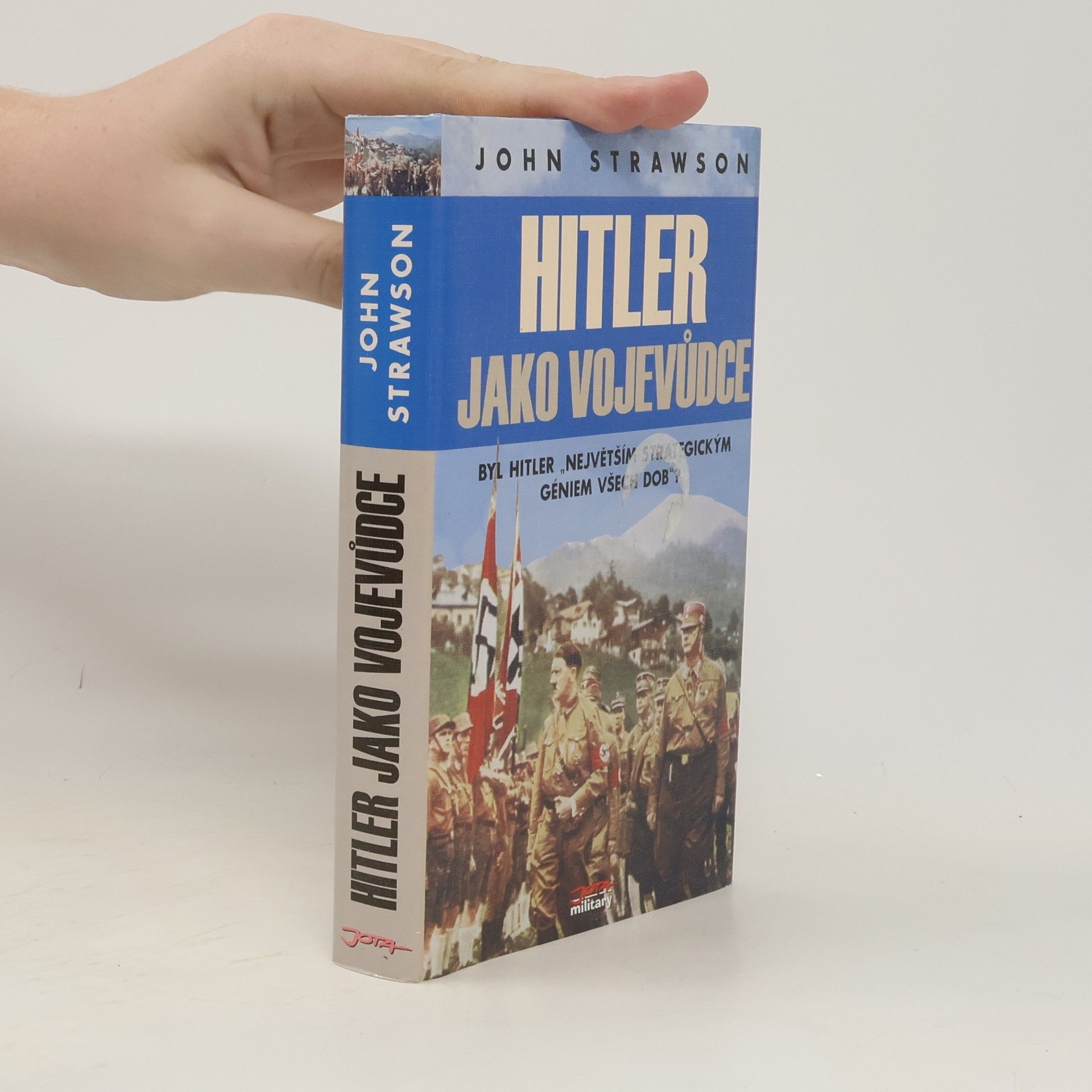Byl Hitler největším strategickým géniem všech dob, jak by nás ráda přesvědčila nacistická propaganda, nebo byl ve vojenských záležitostech jen vynalézavým amatérem? Proč po jeho ohromujících úspěších při tažení v Polsku a Francii následovaly zdrcující chyby v Rusku, Tunisku a Normandii? Mohl by německý generální štáb bez Hitlerova neustálého vměšování a jeho katastrofálních důsledků válku vyhrát? John Strawson se pokouší odpovědět na tyto i další otázky a ukázat, jak se Hitlerovo nenasytné zaujetí válkou a dobýváním proměňovalo ve skutečnost. Součástí knihy je i 16 stran černobílé obrazové přílohy.
John Strawson Knihy
Tento autor se věnuje především vojenské historii a biografii, zejména britské armádě. Jeho díla často zkoumají klíčové momenty a postavy vojenských konfliktů, jako jsou studie o Wellingtonovi a Napoleonovi nebo o Churchillovi a Hitlerovi. Svou publicistickou činnost zaměřuje na analýzu vojenských strategií a vůdcovství během významných válek. Jeho knihy nabízejí čtenářům hluboký vhled do vojenských dějin a chování klíčových postav.







Autor ukazuje povahu bitev, ke kterým během kampaně v letech 1940-1943 docházelo, popisuje strategické úvahy i průběh jednotlivých bitev a dojmy těch, kdo v nich bojovali. Jeho vynikající popis je doplněn řadou fotografií a speciálně nakreslených map, stejně jako svědectvími očitých svědků. Vojáci mnoha národů – Němci, Italové, Indové, Novozélanďané, Britové a Američané – všichni popisují to, jaká vlastně bitva o severní Afriku byla.
Focusing on the Italian campaign of World War II, this gripping account by John Strawson reveals how this brutal struggle prolonged the war despite the shifting momentum against Hitler. It explores the rationale behind opening a new front, the impact of key tactical decisions, and the conflicts between notable military leaders like Patton and Montgomery. Strawson delves into the campaign's significance, providing rich detail and strategic insights that illuminate this often-overlooked chapter of history, appealing to fans of military history.
Hitler as Military Commander
- 336 stránek
- 12 hodin čtení
Based on first-person accounts from those who served under Hitler in the military, John Strawson explores the Führer’s strategic successes and failures in battles. In addition to looking at his relationship with his generals, he discusses the psychological and tactical reasons for why initial advances, including the campaigns in Poland and France, were followed by blunders such as those in Russia and North Africa .
Early in 1977 a retired NATO general called together six of his collegues--including an admiral, an airman, an economist and a diplomat--to write a dramatized game-plan for the next world war. A sensational international bestseller, it is a vivid, detailed, and often blood-curdling on-the-spot report from the battle fronts of a "real war", from tank assaults to air clashes to ICBM launchings, based on an insider's knowledge of weaponry and actual NATO and Soviet battle strategies. In the light of changes in Eastern Europe the question now is: Could it ever have happened? Could it ever happen again?
Could Napoleon have won the Battle of Waterloo? What would have happened if he had? Suppose Napoleon had not destroyed the French fleet at would he have conquered India and become emperor of the East? What if Hitler had not halted his forces before Dunkirk and had entrapped the entire British Expeditionary Force? How would Churchill have then defeated the Wehrmacht? If by chance Hitler had been assassinated in 1944 and the German General Staff had taken control, would there have been a totally different kind of surrender? In examining these and other contingencies, General Strawson presents us with an enthralling catalogue of chance and speculation, emphasizing how profoundly the character of commanders influenced events and how events influenced their character.
The Battle for North Africa
- 288 stránek
- 11 hodin čtení
"It may almost be said that Before Alamein we never had a victory. After Alamein we never had a defeat" wrote Winston Churchill in The Second World War. The military historian General Strawson's authoritative book describes how the balance of power in N. Africa see-sawed between the Italian, the British & the Germans thru 1940-43 & how victory was won by the Allies.
A History of the SAS
- 320 stránek
- 12 hodin čtení
In 1941 Operation Squatter, part of the British disinformation campaign in North Africa, was the first mission for the newly formed SAS. It was an unmitigated disaster, but they soon rallied and became one of the world’s most fearsome elite fighting forces. Major General Strawson tells the story of the corps’ first four decades, from campaigns in the Middle East through to the Iranian embassy siege and the Falklands War.
Logico-Linguistic Papers
- 210 stránek
- 8 hodin čtení
P.F. Strawson has been a major and influential spokesman for ordinary language philosophy throughout the late twentieth century, studying the relationship between common language and the language of formal logic. This reissue of his collection of early essays, Logico-Linguistic Papers, is published with a brand new introduction by Professor Strawson but, apart from minor corrections to the text, these classic essays remain original and intact. Logico-Linguistic Papers contains Strawson's major essay, 'On Referring', in which he disputed Bertrand Russell's theory of definite descriptions, distinguishing between referring to an entity and asserting its existence. The book contains twelve essays in all, grouped by subject matter. The first five are concerned with the topic of singular reference and predication and the last three are all responses to J.L. Austin's treatment of the topic of truth. Strawson disputes the correspondence theory of truth, maintaining that facts are what statements (when true) state. The remaining papers deal with meaning, speech acts, logical truth and Chomsky's views on syntax.